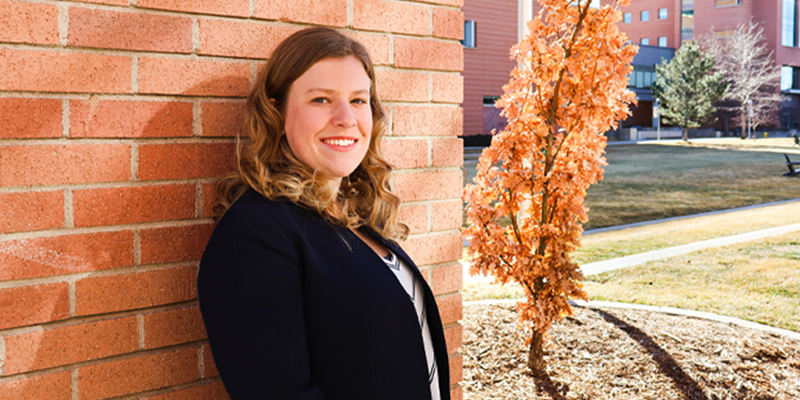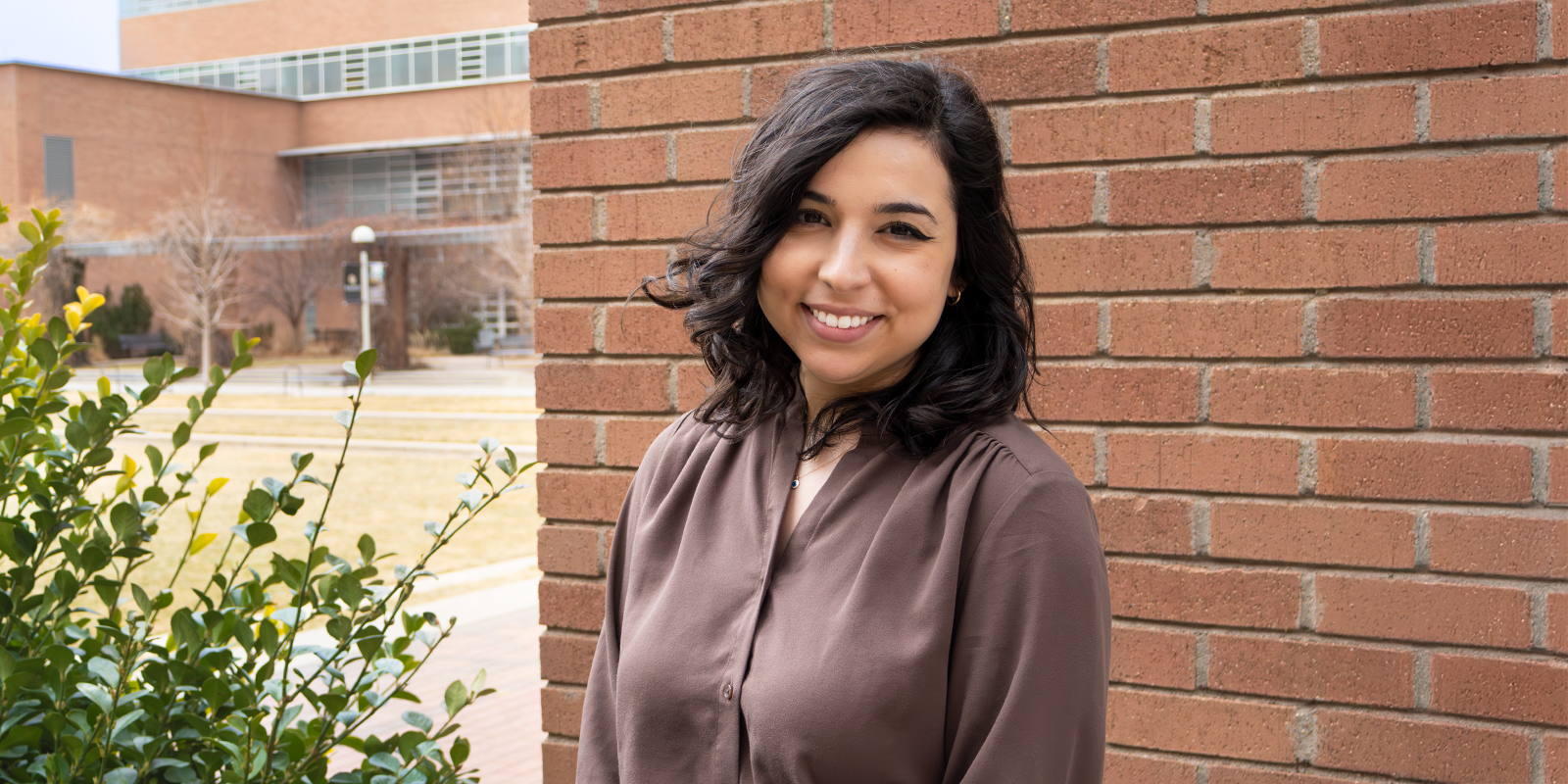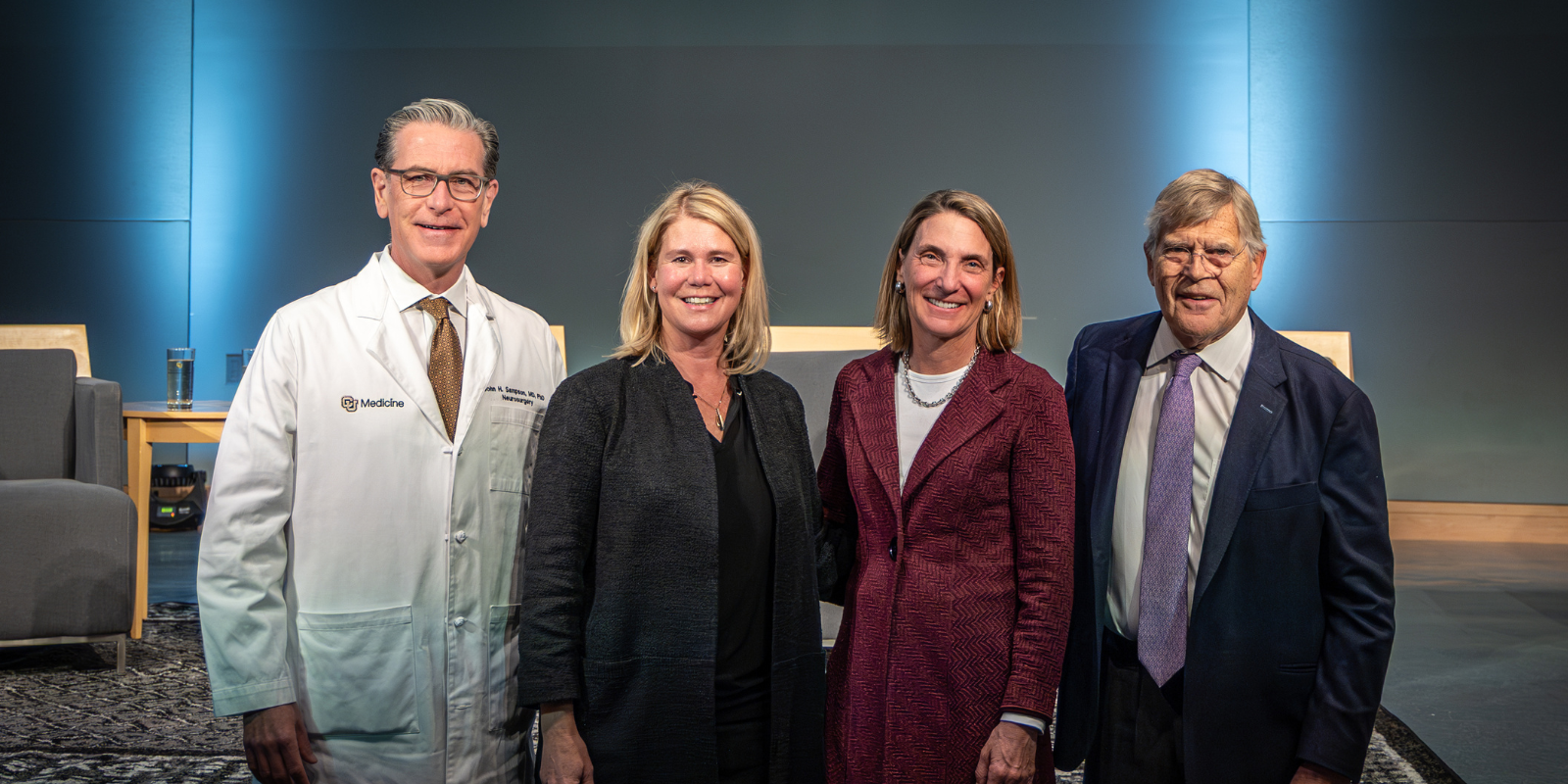Hometown:
I grew up in Saint Albans, Vermont, and I went to the University of Vermont for both my undergraduate and master's degrees.
What do you study at CU Anschutz and what year are you?
I study bioengineering in the Graduate School, and I am currently a fourth-year PhD candidate in Dr. Chelsea Magin's lab. We engineer 3D lung models and study how lung diseases, like pulmonary fibrosis, progress and could be treated.
For my research, I use patient-specific cells and tissues. I am trying to create a better pre-clinical drug screening platform for anti-fibrotic drugs. I hope this work will eventually help expand the number of treatment options and improve quality of life for the millions of people that suffer from chronic lung diseases.
Why did you choose to study at CU Anschutz?
At the University of Vermont, engineering and medicine were really interwoven and located on the same campus, like CU Anschutz. I had a good mentor, Dr. Daniel Weiss, who was a clinician and helped me see that you can do a lot of translational engineering work through research. Since Dr. Weiss was a pulmonary specialist, I learned all about the lungs during my time there. I also really fell in love with taking biomaterials and patient-specific cells and combining them to create these scaffolds that could be used to model the lungs outside the body or could potentially be transplanted back into a patient in the future.
I also applied to programs that had strong pulmonary research centers and were known for translational research. Getting to know my current PI, Chelsea Magin, PhD, early really helped me have a good working relationship and jump from the start.
During my PhD, I've had a lot of opportunities. I've been able to bioprint, work with stem cells, develop engineered biomaterials, and blend many techniques and skills together that will be helpful in the future.
What do you hope to do in the future with your degree?
I want to go into industry, which is kind of a non-traditional route. Most people want to stay in academia, but I knew from the beginning that I wanted to be a tissue engineer or do organ manufacturing and that obtaining a doctoral degree would help me with this. I would really love to work on a team that helps with organ transplants.
For instance, burn patients often need skin transplants. Someone helps prepare these skin grafts on the back end, makes sure it’s safe, ready for use and personalized for each specific patient. I envision myself in a role like this.
What do you like to do when you’re not studying?
In the winter, I love to ski, but during the warmer months I play volleyball. I also love to do anything on the water. In Vermont there were a lot of lakes, and now in Colorado, I go paddle boarding often. I also love to host dinner parties and hang out with friends.
What is it like to serve on Student Senate?
One of the things that I've liked the most about Student Senate is that there is representation from 14 different programs on the campus. A lot of times, everyone's very focused on their cohort and their programs. However, at Student Senate, I get to see people from medicine, people from pharmacy, people that are very like-minded but in a different program work together towards a common goal ‒ and that's been awesome.
If people want to request funding for their student organizations ‒ or if they just want to discuss matters like, "I saw this on campus, and I think that we should address it" ‒ they're welcome to bring their concerns to us.
I always say to the other student senators, "However much you put into Student Senate, you will get right back out." Essentially, the more you apply yourself, get involved and join action committees, the more you will learn, grow and meet new people.
I think if anyone is interested in governance or trying to create initiatives that make the campus better, this would be a great outlet for them.
"Finding your niche or finding what really fulfills you outside of your degree is important."
What is one Student Senate program or accomplishment you're particularly proud of?
One of our highlights is we were able to work with the chancellor's office and start an outdoor gear exchange program, where students can check out equipment to explore the state.
Each year, a lot of new students move to Colorado, and we commonly heard they did not have the gear or knowledge to safely start exploring and trying new hobbies. With this program, we are trying to help students overcome these hurdles.
Is there anything you would like to tell an incoming student?
Pursuing a graduate degree is very demanding. Make sure you have an outlet to relax or de-stress.
What three words would you use to describe CU Anschutz?
I would describe CU Anschutz as innovative, interconnected and transformative.



-2.jpg)
